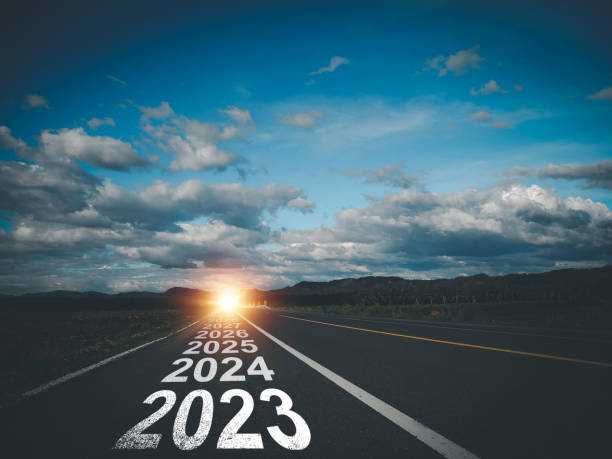
Introduction
As we peer into the future, envisioning the global economy 30 years from now is both a challenging and fascinating exercise. The world is on the cusp of unprecedented changes driven by technological advancements, demographic shifts, climate change, and evolving geopolitical dynamics. This article explores the potential trajectory of the global economy in 2054, examining key trends, challenges, and opportunities that will shape the economic landscape over the next three decades.
Technological Advancements: The Fourth Industrial Revolution
The Fourth Industrial Revolution, characterized by the fusion of digital, biological, and physical technologies, is expected to revolutionize industries and economies worldwide. By 2054, artificial intelligence (AI), machine learning, robotics, and the Internet of Things (IoT) will have profoundly transformed the way we live and work.
Automation and AI
Automation and AI will redefine labor markets, with machines performing tasks that were once the sole domain of humans. While this shift will enhance productivity and efficiency, it will also lead to significant job displacement. New jobs will emerge in AI development, robotics maintenance, and other tech-driven fields, but reskilling and upskilling the workforce will be critical to address the unemployment challenges that may arise.
Biotechnology and Health
Advancements in biotechnology and health will lead to longer, healthier lives. Personalized medicine, gene editing, and regenerative therapies will become mainstream, revolutionizing healthcare delivery and reducing disease burdens. However, the economic implications of increased life expectancy, such as pension sustainability and healthcare costs, will need careful management.
Sustainable Energy and Green Technology
The transition to sustainable energy sources will be a cornerstone of the future economy. By 2054, renewable energy technologies, such as solar, wind, and advanced battery storage, will dominate the energy landscape. Green technology innovations will drive new industries and economic opportunities, contributing to the global effort to combat climate change.
Demographic Shifts: Aging Population and Urbanization
Demographic trends will play a pivotal role in shaping the global economy. Two key trends—aging populations and urbanization—will have far-reaching implications.
Aging Population
Many countries, particularly in Europe and East Asia, will experience significant aging of their populations. This demographic shift will strain pension systems, healthcare infrastructure, and labor markets. Countries will need to adapt by promoting active aging, extending working lives, and investing in age-friendly infrastructure and services.
Urbanization
Urbanization will continue at a rapid pace, with a significant portion of the global population residing in megacities. Urban areas will be the epicenters of economic activity, innovation, and cultural exchange. However, urbanization will also bring challenges such as congestion, pollution, and inadequate housing. Smart city technologies and sustainable urban planning will be essential to create livable and resilient urban environments.
Climate Change and Environmental Sustainability
Climate change will be one of the most pressing challenges of the coming decades. Its economic impact will be profound, affecting agriculture, infrastructure, and human health.
Climate Mitigation and Adaptation
Efforts to mitigate climate change through reducing greenhouse gas emissions and transitioning to a low-carbon economy will intensify. Investments in renewable energy, energy efficiency, and carbon capture technologies will drive economic growth while addressing environmental concerns. Additionally, adaptation strategies, such as building resilient infrastructure and developing climate-smart agriculture, will be crucial to manage the impacts of climate change.
Circular Economy
The shift towards a circular economy, where resources are reused and recycled rather than discarded, will gain momentum. This transition will create new business models, reduce waste, and promote sustainable consumption and production patterns. Governments and businesses will need to collaborate to establish circular economy frameworks and incentivize sustainable practices.
Geopolitical Dynamics: A Multipolar World
The global geopolitical landscape will evolve, with power dynamics shifting towards a more multipolar world. Emerging economies will play increasingly significant roles in shaping global economic governance.
Rise of Emerging Markets
Countries such as China, India, Brazil, and Indonesia will continue to grow in economic and political influence. Their expanding middle classes, technological advancements, and strategic investments will drive global economic growth. However, managing the complexities of a multipolar world will require robust international cooperation and multilateral institutions.
Trade and Economic Integration
Trade patterns will evolve, with regional economic blocs and free trade agreements becoming more prominent. The diversification of trade relationships and supply chains will reduce dependence on any single country or region. However, geopolitical tensions and protectionist policies could pose risks to global trade and economic stability.
The Future of Work: Remote and Hybrid Models
The COVID-19 pandemic accelerated the adoption of remote work, a trend likely to persist and evolve in the coming decades.
Remote Work and Digital Nomadism
Advances in communication technology and the growing acceptance of remote work will enable more people to work from anywhere in the world. Digital nomadism will become a mainstream lifestyle choice, with individuals working remotely while traveling. This shift will have implications for urban planning, real estate markets, and local economies as cities adapt to accommodate a transient workforce.
Education and Lifelong Learning
The future of work will demand continuous learning and adaptability. Education systems will need to evolve to provide lifelong learning opportunities, equipping individuals with the skills needed for a rapidly changing job market. Online education platforms, vocational training, and flexible learning pathways will become integral to workforce development.
Financial Innovations: Cryptocurrency and Digital Economies
Financial innovations will reshape the global economy, with cryptocurrencies and digital economies playing central roles.
Cryptocurrencies and Blockchain
Cryptocurrencies, such as Bitcoin and Ethereum, will become more integrated into the global financial system. Blockchain technology will revolutionize industries by providing secure and transparent transactions, reducing fraud, and enhancing supply chain efficiency. Central bank digital currencies (CBDCs) will also emerge, offering state-backed digital alternatives to traditional currencies.
Fintech and Inclusive Finance
Fintech innovations will enhance financial inclusion, providing access to financial services for underserved populations. Mobile banking, peer-to-peer lending, and digital wallets will empower individuals and small businesses, driving economic growth and reducing inequality.
Global Health and Pandemics
The COVID-19 pandemic underscored the importance of global health and preparedness for future pandemics.
Strengthening Health Systems
Investments in healthcare infrastructure, research, and public health will be paramount to address future health crises. Global collaboration and information sharing will enhance the ability to detect, respond to, and mitigate the impact of pandemics.
Health Equity
Addressing health disparities and ensuring equitable access to healthcare will be critical. International organizations, governments, and private sector stakeholders will need to work together to reduce health inequities and improve health outcomes globally.
Ethical and Social Considerations
As the global economy evolves, ethical and social considerations will become increasingly important.
Corporate Social Responsibility
Businesses will face growing pressure to adopt sustainable and socially responsible practices. Corporate social responsibility (CSR) will be integral to building trust, attracting customers, and retaining talent. Companies that prioritize environmental sustainability, social equity, and ethical governance will thrive in the future economy.
Ethical AI and Data Privacy
The proliferation of AI and digital technologies will raise ethical concerns related to data privacy, algorithmic bias, and surveillance. Ensuring that AI is developed and deployed responsibly, with robust data protection measures, will be essential to safeguard individual rights and maintain public trust.

Conclusion: Embracing Change and Seizing Opportunities
The global economy of 2054 will be shaped by a complex interplay of technological advancements, demographic shifts, climate change, geopolitical dynamics, and ethical considerations. While challenges abound, the opportunities for innovation, growth, and positive change are immense.
Governments, businesses, and individuals must embrace change, invest in education and skills development, and foster international collaboration to navigate the future successfully. By prioritizing sustainability, inclusivity, and ethical practices, we can build a resilient and prosperous global economy that benefits all.
The journey to 2054 will undoubtedly be marked by uncertainty and disruption, but it also holds the promise of a more interconnected, equitable, and sustainable world. As we look ahead, let us harness the power of human ingenuity and collective action to shape a future that reflects our highest aspirations and values.














